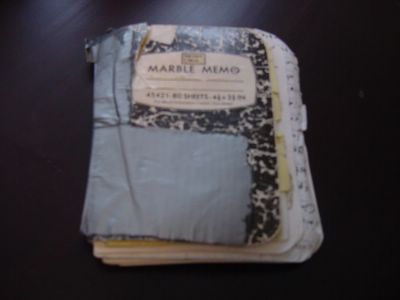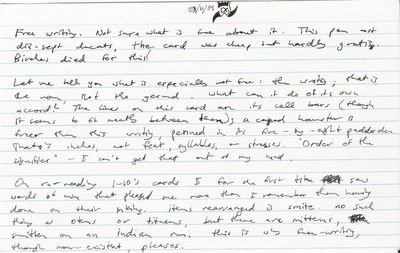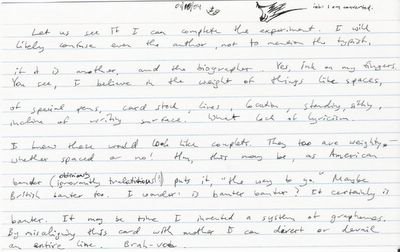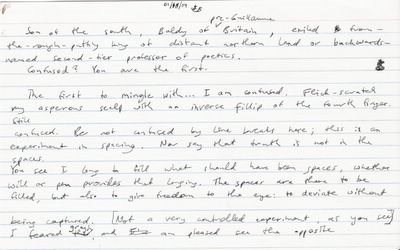AD 2006: The following fragment of an undated memoir is discovered Below Dunster, the text of which we feel it is our duty to make available, rendering the apparently tellworthy events of a particular waning afternoon (judging from the second portion) at DuPont Circle, that nonpareil of D.C. traffic foci. We have reason to believe the originator’s mother tongue was not English but perhaps an otherwise lost language of the Finno-Ugric group, a Nordic pidgin of some sort, or even Esperanto. One thing is certain: he knows his Kipling.
The account begins, we further believe, at the precise moment that witnessed the I alighting on a bench on the Circle’s south side (determined ostsüdometrically), facing in.
Across the circle, a hemp-clad couplet was juggling bowling pins back and forth in a jolly attestation to hippie immortality, and a dumb crowd was gathering to let its toddlers kink their otherwise soft and limber necks in the manner they had learned from their white aristocratic uncles Herbert, Marvin, and Rob, the tennis fanatics. From my bench a flimsy Frisbee flip away, my scrutiny rested at first with the male hippie alone, whose too-long tee-shirt drably concealed a treasure map of moles maculating his upper back, in texture like that of a bovine snout spanned across an equine flank, and in front, the classic concave chest commonly connected with runners of cross-country. Though presumably attached to this, his arms were of the thickest-at-the-elbow type that look as though they may actually originate at the sleeve’s end (due mostly to the latter’s seeming vacancy), mystically remaining tethered to the torso. He belonged to the scattered class of curious bipeds who, if not for the rudely protruding head, would appear the same standing on their hands as on their feet, rendering redundant any description of the sub-stomach region, and though the lawn obscured his feet, I knew he was the kind of person of whom it is superfluous to say he wore no shoes. The juggler, meanwhile, who could perhaps have passed for an engineer-in-training but for those silly pins, was transfigured by his newfound local—very local—fame, and the almost certain anarchistic antics of his mind partied hard behind a strained and pasty grin derived from some invisible horse bit, commandeered by the little gremlin (also unseeable) perched upon his scapula. This hippie smiled tautly, and tossed smoothly, until his broad-lipped fixedness stretched and blurred the scene into one gyrating Gestalt; watched and watcher alike formed the periphery of a fuzzy, fulgent fan-belt in the air, whose lemniscate flutter and waft set me in a weak trance, and Mogli, had Kaa employed this method, would have in a minute been mere python meat.
Discarding that toothsome image, let us consider other curios. Note how the She, the woman partner, has not been noticed or described. It may be that my She-bound eyebeam was impeded by an obese auntie (Marvin’s Missus?); perhaps the second juggler was small or even Lilliputian, although the pins’ trajectory testified otherwise. Unblocked, the gaze of Yours Truly might have registered the jugglerette’s navy hooded sweatshirt with the logo of some obscure non-brand, and vertically striped hemp trousers whose aesthetic infirmity was not quite mitigated by self-applied marks of ball-point pen from the ankles, which were actually at mid-calf, to the pockets bulging with homemade hacky sacks. She had, I am sure, short hair arranged like the tuft on a Bactrian camel’s front hump, and may have shared other features with that beast. Whether she smiled, I do not know. I picture that, if corresponding points on the two jugglers’ lips were joined by unseen thread, the outer corners of her lips must have flared forward like the mouth of a manta ray, the center sucked tight to her incisors, and from this contortion it would not be unconservative to conclude that her jockey-gremlin counterpart was either feeble-armed or absent. But in all likelihood her mouth did nothing of the sort; I, for one, have never witnessed such a horn-lipped visage, and the thought of one is absurd to the reasonable mind. What matters is that she formed the other focus of the projectile path, that she, together with the engineer hippie, whipped into motion the pin piston that now seemed to generate the very traffic of DuPont Circle, forming the eye of a locomotive hurricane so convincing that mixers of metaphors searched the sky for smoke, and half expected a red—no, rainbow—caboose to putt-putt by at any moment.
A pin dropped (one could not hear it) in the cushy grass, and the train stopped, with not nearly so catastrophic consequences as one might have feared: DuPont traffic rambled on, the sky was smokeless as before, and the caboose held fast on page four of Generic Children’s Book. How tenderly do I recall my first edition of
Der Zug mit Sommersprossen (
The Freckled Train), that great treatise of underdog vigor, that paragon of pedagogical publications, that Solomon of children’s literature! Faith, all other kiddie books are pale copies, impish impostors that should have long been burned by Bradbury’s loyal firemen!
Erzähler, verberge dich; narrateur, cache-toi! Apologies; yes, the jugglers: evidently they were nice people or wackos, because they were now teaching a girl of eight or so, named Mindy or Haley, how to juggle. I cannot imagine a person named Mindy or Haley being able to juggle—well, maybe Haley; let us hope her name was Haley—but it is in the nature of hippies to try and teach the intractable and convince the inexorable. Ah, her name was Mindy.
In a Sadist moment that I could not help, I previewed the hilarity of one partner intentionally making a bad toss, perhaps at the other’s knee or pancreas. “Hippie rushed to Georgetown Hospital after taking bowling bin to pancreas, pot spared.” It was then that I vowed not to perish before ascertaining the actual shape and function of the pancreas. “Man goes to grave with not a clue of pancreases”—let it not be so! Or was it pancreae? I must survive to extirpate this trivium, too. O Death, strike not soon!
Sadism subsiding, I recognized for the first time another aspect of the juggling, the aspect which a writer of so-called Romance might have called “the dance” (I would rather have a permanent dull pain administered to my brachial nerve than beschmutz my eyes with such artless blather; I would not even wipe myself with its recycled pages, or accoutre my cute gerbil’s dwelling)—but I need not call it that, nor need I give it any name; let us simply see me responding to the skillful interplay, the kindly kindling of a trade route that lent the pins a highway and the hippies meaning, for without a prop of some sort a hippie gropes in vain for meaning. I saw the balanced reciprocity of tosses, a fond exchange between accomplices of such intimacy that plastic cylinders could serve as words, sidekicks of such security that they would burn so much organic fuel for an act in which, technically speaking, not a blessed Joule of work was done.
“O hippie pot among us,” I cried,
“Let thy fumes infuse us with this amity;
O cormorant, be distant,
O oxpecker, adjacent;
Share with us all thy symbiotic mystery!”
[Here a lacuna of unalarming magnitude interrupts the manuscript] Suddenly
The original Marathoner, Henry Thoreau, and Truly Yours
Were sitting in the Circle in a circle
(If three can make one)
Contemplating breakdance.
I know two out of three are dead already,
But give the story a chance.
Henry David said to stand a chance
You have to take the beat and make it yours.
That I knew already,
So I laid the beat down on his circul-
arity. Henry thought it was a breakdance
Move, so I said, “Sure, the Walden Pound—a new one.”
The fact is, no more than one
In 42,000 (meters) gets the chance
To transcend the Vanilla Ice visage of breakdance—
If it’s you, the charge is yours
To run the news outside the Nike circle;
The Marathoner’s shown you how already.
Of course, he fell when he had finished, and we’re not all ready
To do that. At this point Henry butted back in with one
Of his not-sure-whether-to-laugh-or-kick-him-out-of-the-circle
(And the Circle)
Statements: “Just give Greece a chance.”
Mr. Marathon quipped, “We had it, used it well, and now it’s yours;
Quit musing, pond-man, and breakdance.”
It quickly was confirmed the man knew nothing of breakdance
(Another thing I felt I knew already),
So I stated my opinion, then asked the Greek, “what’s yours?”
“Disregarding Henry,” he replied, “there is no one
So clumsy. Now, my boy, it’s your chance.”
And I stepped into the circle.
When I did, up from the circle
Leapt the leprechauns of breakdance,
Lending silver-footedness and chance,
That coupled with the spunk I had already
(Yes, three can make one!)
To forge a feat of motion that I wish I could make yours.
When I looked up, Henry had found his chance to leave already.
As for breakdance in the circle, the only dancer left was Truly Yours;
The Greek had run off to report the victory was won.








